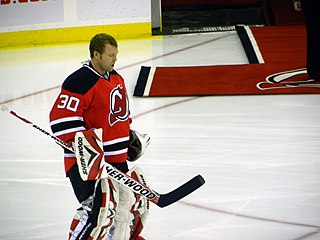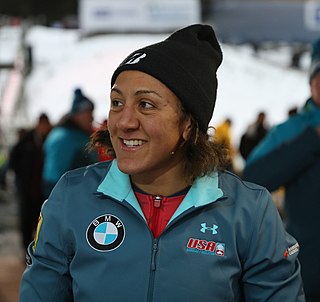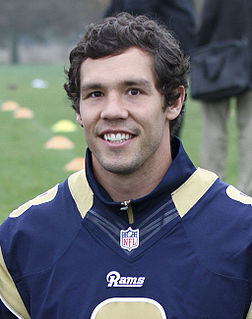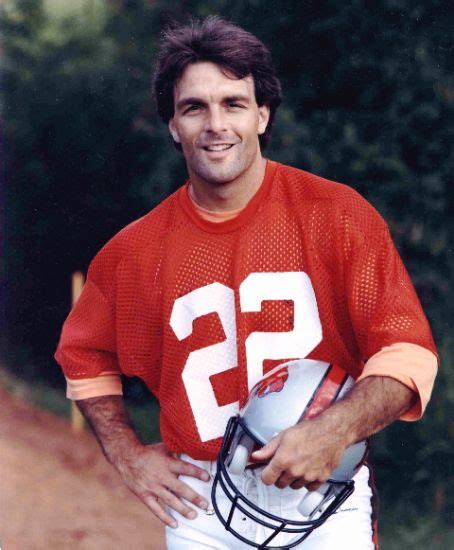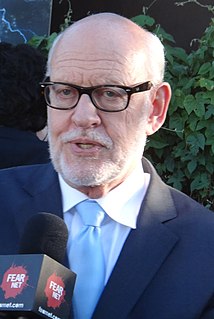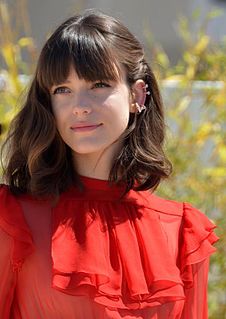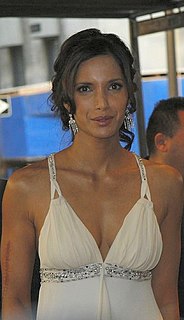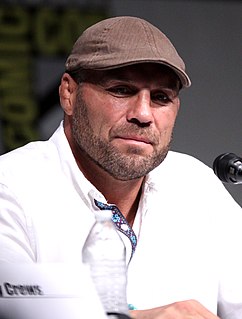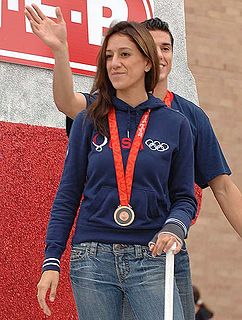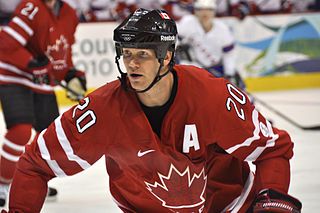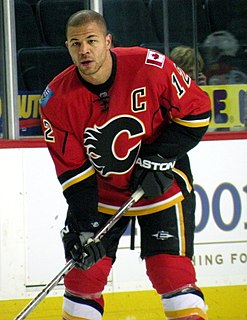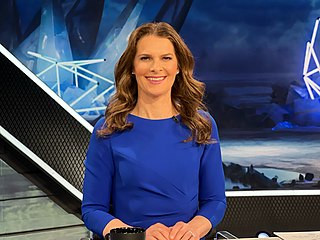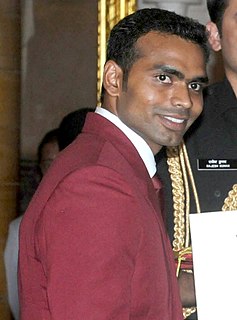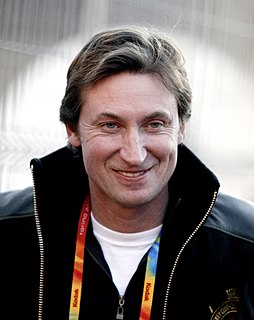A Quote by Martin Brodeur
I don't know where sports in general will go. But when I grew up, you just played the sport. Parents just wanted to make sure that you were happy doing something.
Related Quotes
I grew up playing softball, and at the age of nine, I decided I was going to be an Olympian. I didn't really know what that meant at the time. I thought it might be in a warm summer sport like softball, but I played a variety of sports growing up - basketball, soccer and track. I really didn't care. I just wanted to be an Olympian.
I played a million different sports when I was growing up. I started when I was probably five or six, and we'd just go from activity to activity to activity. I think, finally, my parents just realized that we were missing something in our lives. They realized that it was time for us as a family to start going to church.
Now people are much more receptive because they can just go online and just Google your name and make sure you're not, you know, psycho. But, before, I think lot of opportunities were missed by a lot of girls. Also parents! The girls would go home and would say, "Oh, you know, I was just scouted." And the parents were, like, "You're not going to be a prostitute."
My parents had an independent theater company here in Sweden during the 1980s, so I was raised watching my parents create independently, having a lot of fun and just doing what they wanted to do. I think that idea of independence as an artist was something I was always used to. And then I entered the industry from a very commercial perspective, and things were very different then from what I grew up with.
I'm most proud of my kids, for one, and my family and my parents. Outside of that - what am I proud of? I don't know. I don't look back, I just go forward. I'm just proud of the fact that my parents were immigrants and we had nearly nothing, and all of the sudden, with the help of a lot of people and my parents as a model, I amounted to something. And I'm doing some very decent work.
I started wrestling at ten. I played a lot of other sports: soccer, football. I really enjoyed skiing. But wrestling just took off for me. It seemed to be the sport I had an affinity for; I liked the individual, combative nature. There's something special about that. It took me all the places I wanted to go.
What parents said they valued most were discussions with teachers and heads, and what they wanted was more descriptive information in their children's school reports. This is particularly true for primary schools. Parents wanted to know much more than just how their children were doing academically.
I should also say, in general, I just drank a lot. I shouldn't characterize it as "to get the courage to perform." It was just an in-general nighttime activity. It definitely made it easier when I started doing stand-up. It was just much simpler to do a couple of shots. It made my nerves go away, for the most part. It just was something I sort of relied on for about the first four years.
